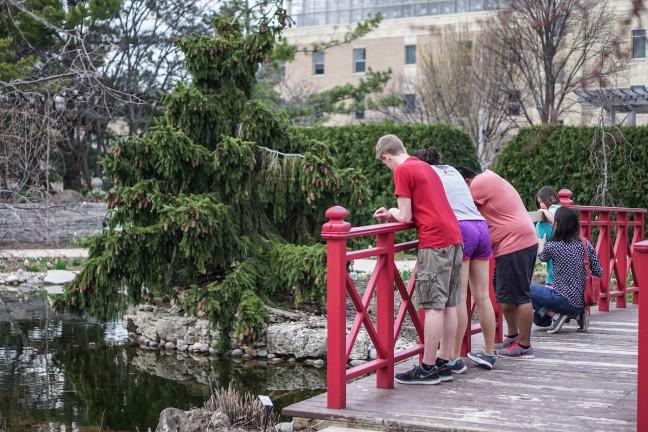To better teach Wisconsin kids about sustainability and healthy eating, University of Wisconsin is partnering with other organizations in the state to establish a network for educators.
The Wisconsin School Garden Network, supported by the Cultivate Health Initiative, is a joint effort between Community GroundWorks, a nonprofit organization to connect people to nature and local food, and UW’s Environmental Design Lab, which does community-based research in health.
The network is a public health project that expands and sustains garden-based education in Wisconsin to improve the eating habits of students ranging from prekindergarten through high school, Nathan Larson, director of the CHI, said.
“I think we are seeing a lot of positive benefits for school gardens,” Larson said. “There is a lot of opportunity for academic achievement, it’s a really interdisciplinary learning environment as well as a great place to encourage intergenerational learning and volunteerism.”
The program will help to improve communication between educational gardens, Larson said. The goal, he said, is that these gardens will influence children to eat more fruits and vegetables as well as increase their outdoor activity.
The project will provide educational opportunities over the next five years for 2,000 Wisconsin school educators, especially those who are lacking proper resources, Larson said.
“We saw some regions that had less access to resources than others, so we are trying to make it an equitable distribution of resources,” Dennis said.
A five-year grant of $1 million funds the project, Sam Dennis, UW Department of Landscape Architecture associate professor, said. The fund comes from the Wisconsin Partnership Program of UW School of Medicine and Public Health, according to the project website.
The two partner organizations will work together to develop the network and measure its success over the next five years, Dennis said.
Dennis said this is the biggest grant they have received so far. Initially, the project began with a planning grant, then a three-year implementation grant and now the five-year community impact grant.
“This is the big rolling out of a state-wide project and that’s our plan, to serve the state,” Dennis said.
Upon recognizing the need for a more supportive network, the two organizations established hubs in five different regions of Wisconsin to support outdoor education, Dennis said.
Larson has found over the years that an individual teacher or parent will start a garden, but they can be hard to maintain without institutional support, he said. The programs will combat this issue by providing a network for sharing ideas and support, Larson said.
“A lot of gardens are working a little bit in isolation, but what we have found is that when educators running school gardens are connected with others in the area, everybody benefits,” Larson said.














